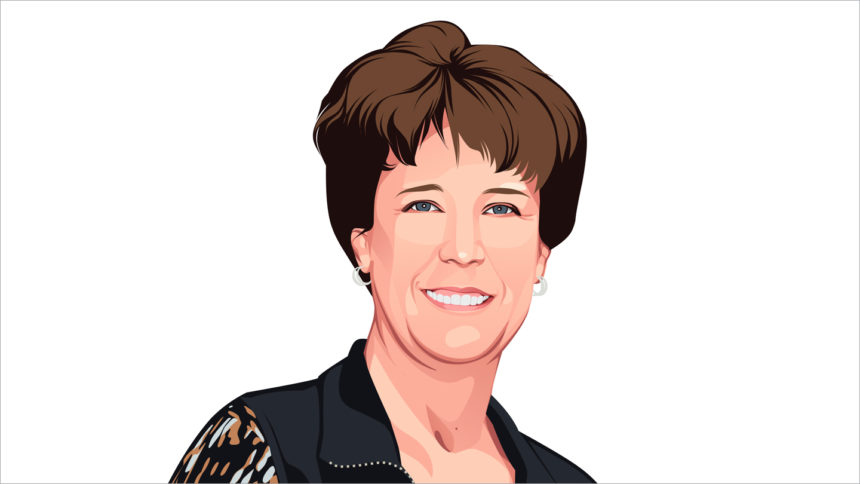
The fifth time I told my story of why I was here, I wondered if I needed to change it to make it more interesting. Except I was in the emergency department and needed to be seen by someone.
Next to me was an older adult who, by my calculation, was on her seventh time telling her story. As I listened to what was happening, I recognized that it was mindless listening. Mindless listening is when our mind goes on autopilot; we ask repetitive questions, not registering the answers for future use. Mindless listening is many times done by providers while filling in fields on a computer screen.
My room partner was suffering and did not have someone with her. As I listened to her eighth time recounting why she was there, it hit me that she had a urinary tract infection (UTI). One of those in the older adult can manifest itself beyond pain, frequency and urgency. Underlying UTI often causes confusion, lethargy, falls and other symptoms. In older females, the loss of protection of estrogen is because of menopause. A good estrogen supply creates a low acidic pH in the vagina.
Additionally, as estrogen levels drop, that causes the skin and tissue between the urethra and the opening of the vagina to get thinner and drier, and lose acidity. That low acidic pH creates an environment that is hostile to pathogen growth. Bacteria growth occurs at a pH of 6.0. Most bathing wipes are pH neutral or 7.0. Soap and water are pH neutral to alkaline 8.5+. We also know that pathogens that live in the gut are the causative of UTIs. It is the perfect storm for the older female to be plagued by UTIs.
The top five offending pathogens for UTIs are:
- Escherichia coli
- Klebsiella spp. (pneumoniae, oxytoca)
- Pseudomonas aeruginosa
- Enterococcus faecalis
- Proteus spp.
E. coli is the most common, but Klebsiella and others are making their presence known as contenders for UTIs. Carbapenem-resistants’ are also increasing in Klebsiella, Ecoli, and Pseudomonas, leading me to the story’s end.
As my roommate lay on the stretcher in pain, our mutual doctor walked into the room. You know it is not a social call when you hear the glass door open in your room. The doctor walked over to my roommate and, in a matter-of-fact tone, stated that she did have a UTI. I, of course, was saying under my breath, “I knew it!” They were going to take a watch-and-see approach. The doctor told her to follow up with her primary care doctor. They did not want to prescribe antibiotics as this could be chronic, and the research shows that antibiotics are ineffective against chronic UTIs.
Yes, they were going to send her to her residence without treatment. We can only imagine what might have happened if the nurse had not intervened. She reminded the doctor that the patient lived alone, was recently widowed, and is in considerable pain. She gently brought him to develop a course of treatment.
Later when the same nurse was taking care of me, I asked her what that was about. The research does not support his statement of nontreatment when it is acute and symptomatic. She shook her head and stated that he was new to practice. She laughed and said, “Don’t worry — we will get him trained soon.” She added that he doesn’t understand how to treat older adults.
The World Health Organization declared that ageism is the most accepted prejudice in healthcare. As I lay there staring at the glass doors, I thought about the “what ifs.” What if the nurse did not intervene? What if the doctor sent this lovely older woman home to suffer, and she did not understand what to do as the bacteria raced through her body?
Was it ageism or being misinformed? Was it a little of both? As the same doctor examined me, I asked him where he learned how to treat chronic UTIs. He shared that he had attended a lecture last week and the speaker shared her research in the field.
I know the speaker and, once home, asked her about the presentation. Yes, she shared information about chronic UTIs in the older adult, but did not say to not treat and take a watch-and-see approach when the individual is acute and symptomatic. The doctor misunderstood what the presenter said about chronic UTIs.
The famous poet Nikki Giovanni stated, “I’m glad I understand that while language is a gift, listening is a responsibility.”
Listening IS a responsibility. Listening with an unbiased mind and heart is our highest responsibility in caring for those we serve.
Listening is more than a part of a conversation. Listening and discerning all the information that influences our actions is a greater part of that responsibility.
Martie L. Moore, MAOM, RN, CPHQ, is the president/CEO of M2WL Consulting. She has been an executive healthcare leader for more than 20 years. She has served on advisory boards for the National Pressure Injury Advisory Panel and the American Nurses Association, and she currently serves on the Dean’s Advisory Board at the University of Central Florida College of Nursing and Sigma, International Honor Society for Nursing. She was honored by Saint Martin’s University with an honorary doctorate degree for her service and accomplishments in advancing healthcare.
The opinions expressed in McKnight’s Long-Term Care News guest submissions are the author’s and are not necessarily those of McKnight’s Long-Term Care News or its editors.
Have a column idea? See our submission guidelines here.





